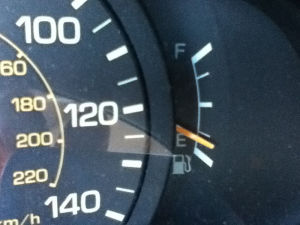 When her son asked "Hey, could you take the kids for the weekend?" my patient said "no" -- and then spent a week feeling guilty about it. "What do you think? Was I just being selfish?" Hmm, let's see: Full-time job? Check. Full-time husband? Check. Elderly parents and in-laws in need of care? Double check. Volunteer responsibilities? Checkety check. "I'd love to help," she said, as the tears welled up, "but I'm just so exhausted. I just feel so guilty for not doing more. "
When her son asked "Hey, could you take the kids for the weekend?" my patient said "no" -- and then spent a week feeling guilty about it. "What do you think? Was I just being selfish?" Hmm, let's see: Full-time job? Check. Full-time husband? Check. Elderly parents and in-laws in need of care? Double check. Volunteer responsibilities? Checkety check. "I'd love to help," she said, as the tears welled up, "but I'm just so exhausted. I just feel so guilty for not doing more. "
I could relate. It's tough to feel like there's not enough of you to go around -- and easy to feel like you're doing something wrong in saying no to someone you love.
I asked her if she had been getting enough sleep. Only on the weekends. Is she exercising three to five times a week like she'd like to? Not really. More like once or twice. Is she cooking healthy meals for herself regularly -- a key part of our treatment strategy? Not so much. Is she making time for her spiritual practice? Yes, but she feels like she's phoning it in. How about relaxing or connecting with friends? Ha.
So the absolute basic things she needs to be doing for herself are barely happening. Should she be doing more? I'm going to go with "no." How about slathering a thick layer of guilt on top of that? No, and no.
Am I suggesting that we all need to get 100 percent of our own needs met 100 percent of the time before we can help other people? Of course not -- otherwise no kid would ever make it to adulthood! Part of love is service. It feels good to help out, and what that does for your spirit can often make up for a deficiency of physical energy. But (for me, at least) those delicious feelings dry up under the harshness of overextending out of obligation. Then it's not only unsustainable, it's also likely to backfire, as the cry of unmet needs get externalized as resentment.
I would love to cure world hunger. I would love to give a billion dollars to the cause. But much as I'd love to write that billion dollar check, I simply don't have it to give away. But I do have $50, which I can and will donate to the cause. It's sustainable, in a way that taking out a payday loan in order to do my part in the global effort would not be.
Here's the paradox: When we dedicate time to taking care of ourselves, we have more energy reserves to give to others. I know I'm a better acupuncturist (and friend, wife, and stepmom) when I've had enough sleep, when I've meditated, and when I am moving from a place of presence, than when I'm running myself into the ground.
I know this, yet I still tend to feel guilty when I'm taking care of myself if I know it will disappoint someone else (including my Work Self -- she's demanding!). To avoid feeling guilty, there are two gauges to check. First, the fuel gauge: How's my energy? The second is the intention gauge. A quick check question I use is, "What is my motivation?" If the answer involves a "should" or "ought to," I let the answer be no: otherwise it's a social expectation overriding inner wisdom.
So how do you know whether you're doing enough? If you've got a good amount of fuel, and if you can say yes with love in your heart, go ahead and take the detour to help someone out. But if you barely have enough gas to make it to your destination, it's probably not wise to take the detour. No one is served when you sputter to a halt.